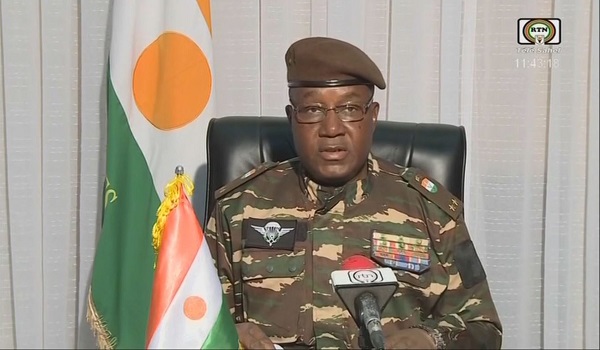The military junta in Niger Republic has taken the dramatic step of cutting off diplomatic ties with Nigeria, following the failure of the Economic Community of West African States (ECOWAS) efforts to mediate and resolve the ongoing political impasse.
The situation in Niger Republic took a concerning turn as ECOWAS issued a stern ultimatum of seven days for the reinstatement of President Mohamed Bazoum, in a bid to avert a potential clash with the military junta. The regional bloc had been actively engaging with the junta in an attempt to bring about a peaceful resolution and restore constitutional order.
However, the inability to reach an agreement between the junta and ECOWAS has led to a rupture in diplomatic relations between Niger and Nigeria. This development highlights the deep-rooted challenges faced by both nations in their efforts to restore stability and democratic governance in the region.
The breakdown in negotiations underscores the complex dynamics at play, with the military junta displaying a firm stance in the face of external pressure. The severed ties between the two neighboring countries further intensify concerns about the potential for further political instability and potential regional ramifications.
As ECOWAS faces the setback in its mediation efforts, it now confronts the pressing challenge of finding alternative avenues for resolving the impasse and ensuring the peaceful transition of power. The diplomatic fallout between Niger and Nigeria serves as a stark reminder of the delicate nature of regional politics and the intricate web of interests that come into play during such crisis situations.
The international community will closely monitor the unfolding developments and the potential impact on the broader West African region. The situation in Niger Republic underscores the need for concerted efforts by regional and international actors to find a peaceful and lasting solution, ensuring stability, democracy, and the rule of law prevail.









